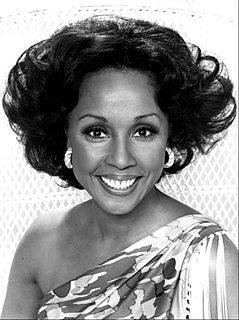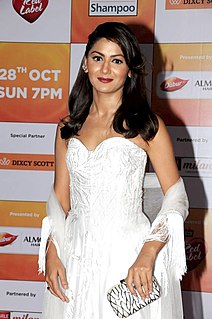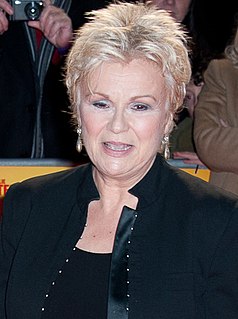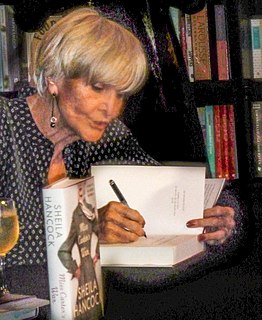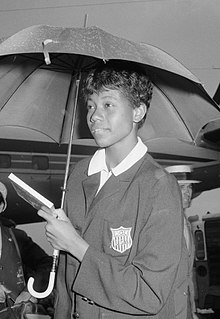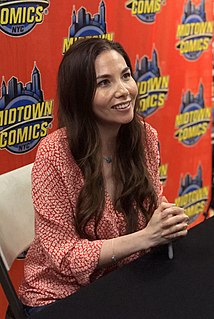A Quote by Diahann Carroll
In the beginning, I found myself dealing with a show business dictated by male white supremacists and chauvinists. As a black female, I had to learn how to tap dance around the situation. I had to ... find a way to present my point of view without being pushy or aggressive. In the old days, the only women I saw in this business were in makeup, hairdressing, and wardrobe departments. Now I'm surrounded by women executives, writers, directors, producers, and even women stagehands.
Quote Topics
Aggressive
Around
Beginning
Being
Black
Business
Dance
Days
Dealing
Departments
Dictated
Directors
Even
Executives
Female
Find
Found
Had
Hairdressing
How
In The Beginning
Learn
Makeup
Male
Myself
Now
Old
Old Days
Only
Point
Point Of View
Present
Producers
Pushy
Saw
Show
Show Business
Situation
Surrounded
Tap
Tap Dance
View
Wardrobe
Way
Were
White
Without
Women
Writers
Related Quotes
If you look at most women's writing, women writers will describe women differently from the way male writers describe women. The details that go into a woman writer's description of a female character are, perhaps, a little more judgmental. They're looking for certain things, because they know what women do to look a certain way.
...black women write differently from white women. This is the most marked difference of all those combinations of black and white, male and female. It's not so much that women write differently from men, but that black women write differently from white women. Black men don't write very differently from white men.
If you look at most womens writing, women writers will describe women differently from the way male writers describe women. The details that go into a woman writers description of a female character are, perhaps, a little more judgmental. Theyre looking for certain things, because they know what women do to look a certain way.
I think it's just that as a creative person, in all the different things that I've done or ways that I've found to express myself, I've consistently come up against resistance in certain areas. I think that the world is not comfortable with female sexuality. It's always coming from a male point of view, and a woman is being objectified by a man - and even women are comfortable with that. But when a woman does it, ironically, women are uncomfortable with it. I think a lot of that has to do with conditioning.
We had early on women having the right to vote, then women in the workforce during WWII, just going back in history, and then we had the higher education of women, and then women more fully participating in the economy and in business, the professions, education, you name the subject... but the missing link has always been: is there quality, affordable healthcare for all women, regardless of what their family situation might be?
Women's tennis has been around for a very long time - we're talking about the 1800s. But women's soccer hasn't had such a long history, so now they're right at the beginning of really trying to make things equal. We need to continue not only to advocate for women but to have men advocating for women.
I know black women in Tennessee who have worked all their lives, from the time they were twelve years old to the day they died. These women don't listen to the women's liberation rhetoric because they know that it's nothing but a bunch of white women who had certain life-styles and who want to change those life-styles.
I started out writing romance novels, and that's a side of publishing that's very female oriented. 99.9% of the writers are women, most of the editors are women, and these are books written for the female gaze. And so my point of view - the way I looked at fandom and publishing and writing - was all about women. So for me that's what was natural, that's what was comfortable. And then I moved over to comics. And all of a sudden it was... Pardon the expression, it was a sausage fest.
